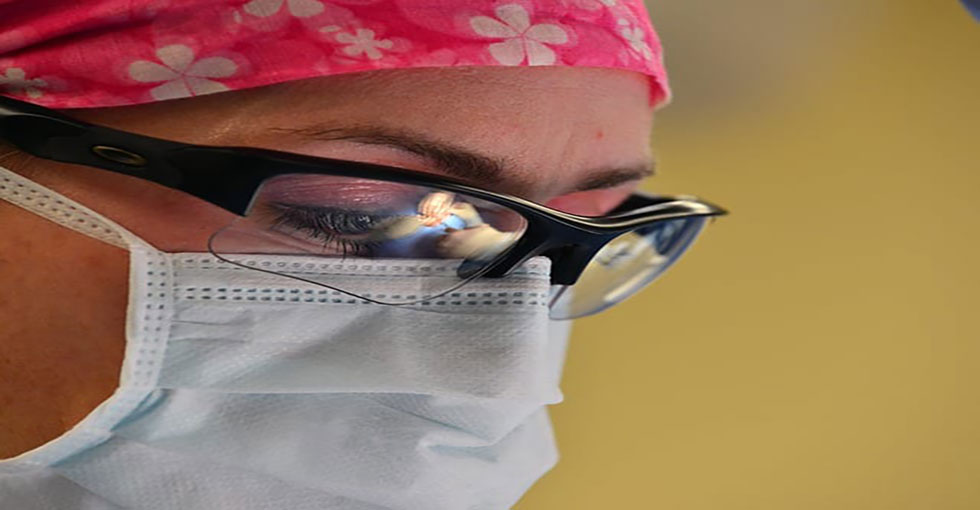Lorna Badham, a barrister specialising in Personal Injury and Employment law at St Philips Chambers, provides a legal perspective on this headline-dominating topic.
Have we ever talked so much about PPE? Each breakfast bulletin features interviews with essential workers on the frontline of the COVID-19 pandemic, varyingly reporting inadequacies, shortages and faltering supply lines. When a shipment lands, it makes the news.
This article provides a legal perspective on the current crisis. It considers the duties upon employers and the extent of recourse for employees at civil law. Its aim is to inform decision-making by both.
What is PPE?
PPE stands for “Personal Protective Equipment.” It is not limited to gowns, facemasks, and latex gloves- cases have considered ear muffs for train drivers, armoured tanks for soldiers and even protective hand creams for an employee tasked with using a synthetic glue that would otherwise damage his hands. Effectively, it is any appliance, article or accessory that can screen or safeguard an employee against hazards.
What legal obligations are on an employer to provide (adequate) PPE?
Obligations fall under three broad heads:
- the statutory duty to provide PPE under Regulation 4 of thePersonal Protective Equipment at Work Regulations 1992(“the PPE Regulations”);
- the common law obligation to take reasonable care in the provision of adequate plant and equipment;
- the statutory responsibility for defective equipment under s1 of the Employers’ Liability (Defective Equipment) Act 1969 (“the Defective Equipment Act”).
The Defective Equipment Act applies to extend liability to an employer in circumstances where PPE which is otherwise suitable has a defect (usually, through the fault of the manufacturer). This is important in providing recourse to employees, but is outwith the focus of this article.
The other heads are considered in turn.
Statutory duty to provide PPE
Under Regulation 4 of the PPE Regulations, every employer has an obligation to ensure that “suitable personal protective equipment is provided to his employees who may be exposed to a risk to their health or safety at work except where, and to the extent that, such risk has been adequately controlled by other means which are equally or more effective.”
Thus suitable PPE has to be provided unless the risk(s) can be mitigated as or more effectively by doing something else. Imagine a cardiologist who, to reach their ward, must walk through a corridor also used by patients who are COVID-19 positive. Regulation 4 would put an obligation on the employer to provide suitable PPE, for example, a face mask- unless the risk to the cardiologist could be adequately controlled by another means. If the cardiologist’s ward, or route, could be moved so that they did not have to pass through the corridor at all, this may satisfy the obligation.
Regulation 3 makes it clear that to be considered “suitable”, PPE must be appropriate for the risk(s) involved, the conditions in which the employee may be exposed to the risk and the period for which it is intended to be worn. It is probable that for nurses or carers treating COVID-19 positive patients, the requirement will be to provide a medical-grade respirator rather than a paper face mask. Single use PPE, by definition, is likely to only be suitable for use on one occasion. If news reporting is accurate, many employers are currently failing to meet their statutory duties in this regard.
Additionally, under the PPE Regulations, PPE is only suitable if it fits, if it takes account of the health of the wearer and if it is effective in preventing or controlling risk.
What action can employees take if their employers are not providing suitable PPE? There is no direct cause of action based on the regulations. Since 1 October 2013, a breach cannot in and of itself justify or found a legal action.
Still- the regulations exist to oblige employers. And whilst a breach of the PPE Regulations will not automatically prove a case in negligence under the common law, if an employer has acted unreasonably in breaching the PPE Regulations then liability is likely to result.
The impact of the PPE Regulations, then, is to inform a decision made by a court in deciding a claim brought under the common law.
The common law obligation
The courts have developed the precedent that an employer owes an employee a duty to take reasonable care for their safety. Different components make up this duty, most particularly obligations to take reasonable care to provide a safe place of work, to employ competent employees, to provide a safe system of work and to provide and maintain adequate equipment. It is the latter which includes an obligation, where reasonable, to provide PPE.
As detailed above, the question of what is reasonable can be informed by the obligations placed upon an employer by the Regulations. Pleadings may argue that an employer failed to take reasonable care in providing PPE because the equipment was outdated, didn’t fit, or didn’t take account of the health of the individual wearing it.
How far an employer needs to go to comply with its duty depends on the individual circumstances of the employee. In Paris v Stepney Borough Council [1951] AC 367, the Defendant local authority failed to provide protective goggles to workers employed in their vehicle maintenance department. The Claimant had sight only in one eye, and found himself blinded when a sliver of metal flew into it during the course of his work. The then House of Lords found that thisemployee should have been provided with goggles, albeit there was no requirement on the employer to give them to the whole workforce.
What are the implications for the current crisis? Whilst the over seventies and those with serious pre-existing health conditions may be following government guidance and isolating at home, within the still-working crew of any ambulance, hospital or care home staff are likely to sit at different points on the vulnerability spectrum. Any employer who knows, or who really should know, of a staff member who has a particular vulnerability to the coronavirus should consider, in the words of the British Medical Association, “whether adjustments to work or redeployment might be appropriate.” An adjustment could well include prioritisation in terms of PPE.
Any employee can bring an action asserting that their employer has not complied with this duty- i.e. that they have not taken reasonable care to provide adequate plant and equipment. How might they win? Showing that, for example, a gown was not provided is not sufficient. Liability will only be found if the employer is unreasonable in failing to provide that gown. An employer who has diligently tried to seek out necessary PPE but been unable to provide it because of critical shortages may escape liability. However, in circumstances where both funds and PPE are available, even if that availability is outwith the formal government scheme, liability may be found.
Claimants and Defendants should expect courts in due course to balance the difficulty of providing the equipment with the level of risk faced, and the efficacy of the equipment in meeting that risk. If facing actions, employers should expect to provide data and/or specific reasoning as to why an obviously necessary piece of equipment could not be provided. Whilst the circumstances of the COVID-19 outbreak will be highly relevant, it is unlikely that the mere assertion that the outbreak made resourcing difficult will be enough. The courts and tribunals are already showing an intention to look behind general statements made about the pandemic during litigation.
Conclusion
The current situation raises the possibility of an increase in employers’ liability claims founded on the basis that reasonable care has not been taken to provide employees with PPE. Those claims are likely to be informed by the obligations placed on employers under the PPE Regulations, although a breach of the Regulations will not be determinative.









